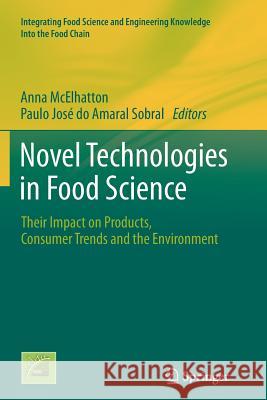Novel Technologies in Food Science: Their Impact on Products, Consumer Trends and the Environment » książka
topmenu
Novel Technologies in Food Science: Their Impact on Products, Consumer Trends and the Environment
ISBN-13: 9781489985835 / Angielski / Miękka / 2014 / 424 str.
Novel Technologies in Food Science: Their Impact on Products, Consumer Trends and the Environment
ISBN-13: 9781489985835 / Angielski / Miękka / 2014 / 424 str.
cena 490,19
(netto: 466,85 VAT: 5%)
Najniższa cena z 30 dni: 468,37
(netto: 466,85 VAT: 5%)
Najniższa cena z 30 dni: 468,37
Termin realizacji zamówienia:
ok. 22 dni roboczych
Bez gwarancji dostawy przed świętami
ok. 22 dni roboczych
Bez gwarancji dostawy przed świętami
Darmowa dostawa!
The book covers novel technologies, including high pressure, antimicrobials, and electromagnetism, and their impact.











